PCOS, Insulin Resistance and Carbs: The non scientist's scientific explanation.
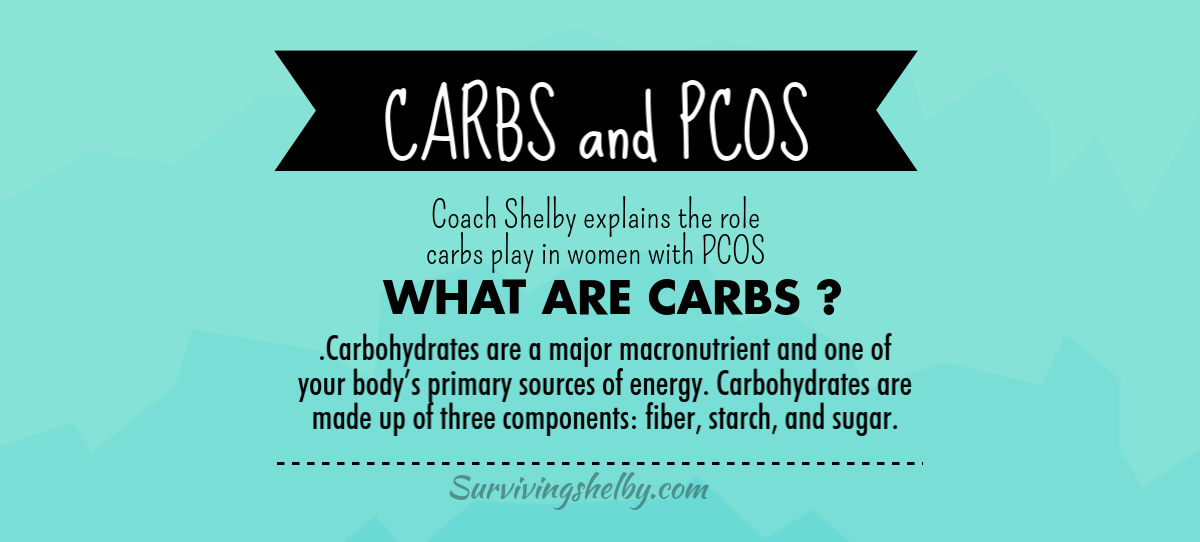 Listen. I hear every day from someone in some form about carbohydrates. I have waited a long time to post this discussion because it is such a hot button topic in the PCOS community. But before I talk about my thoughts and theories on Carbs and PCOS, I want to make sure everyone understands what they are, and how they work in our bodies.
Listen. I hear every day from someone in some form about carbohydrates. I have waited a long time to post this discussion because it is such a hot button topic in the PCOS community. But before I talk about my thoughts and theories on Carbs and PCOS, I want to make sure everyone understands what they are, and how they work in our bodies.
Carbohydrates are one of your three major macro nutrients ( the others being fat and protein). Carbohydrates are found in foods including fruits, vegetables, grains, potatoes, pastries, and candy. Carbs are broken down into sugar, or glucose, by the body once they are digested. This, in turn, stimulates the release of insulin.

Here are some examples of how you may have heard carbs described:
- healthy vs. unhealthy
- good vs. bad
- slow vs. fast
- simple vs. complex
No wonder people get so confused!
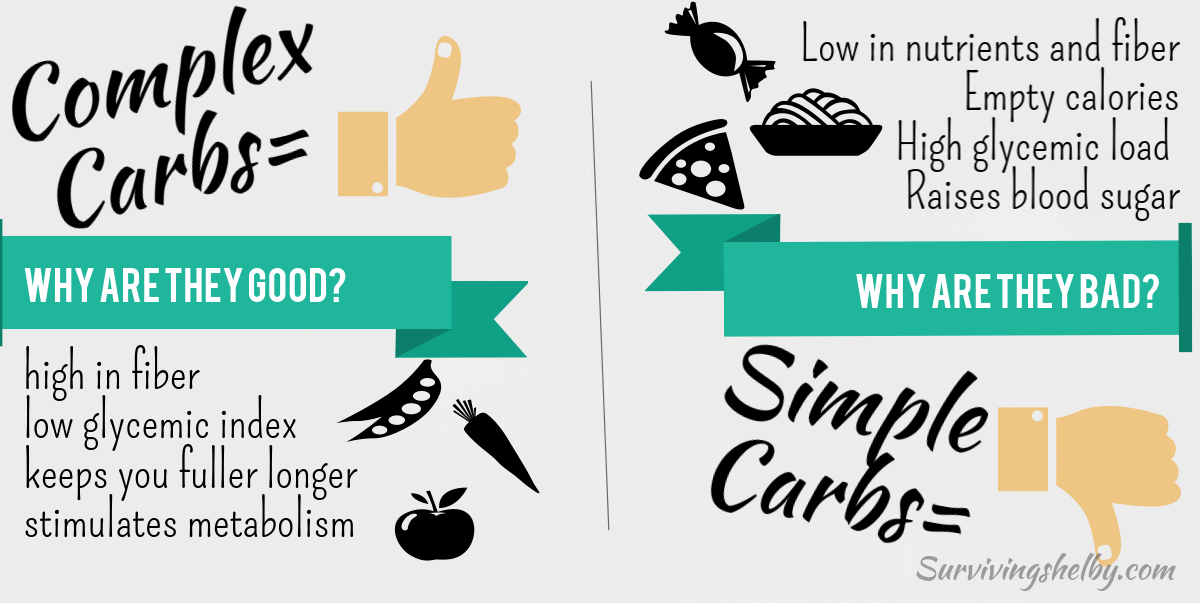
However you want to describe them, you need to understand a little bit of the science of what they do in your body to understand which ones to eat.
Let's talk about what happens when you eat carbs.As carbohydrates are broken down and enter the bloodstream, they raise the amount of sugar (glucose) in the bloodstream. As you eat carbs, your blood sugar level rises, which activates the hormone insulin. Insulin's job is to carry the sugar away from the blood to be stored.
Insulin= Fat Storage hormone
Here's where PCOS starts to come into play.
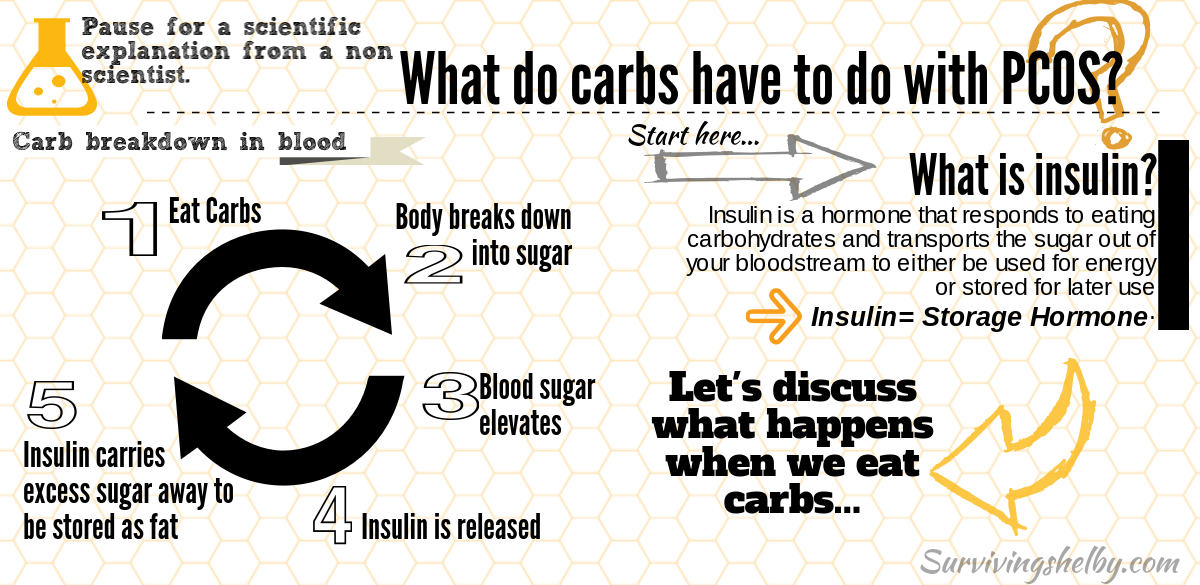
Polycystic ovarian syndrome interferes with the way a woman’s body uses the hormone insulin. This condition, known as insulin resistance, can cause a build-up of sugar-glucose in the woman’s bloodstream. Your body may not be producing enough insulin to meet needs, so some glucose can't get into the cells. Glucose remains in the bloodstream, causing high blood glucose levels.
What does that mean for us and what the heck does it have to do with carbs?
The presence alone of insulin in the bloodstream sends message to body that extra fuel is available and goes into storage mode. You can't be in storage mode and fat burning mode at the same time. The more “insulin sensitive” your muscles are, the more readily they will suck in sugar instead of having that sugar get converted to fat.
(PCOS lifehack : a great way to make your muscles more insulin sensitive? Strength training of course!)
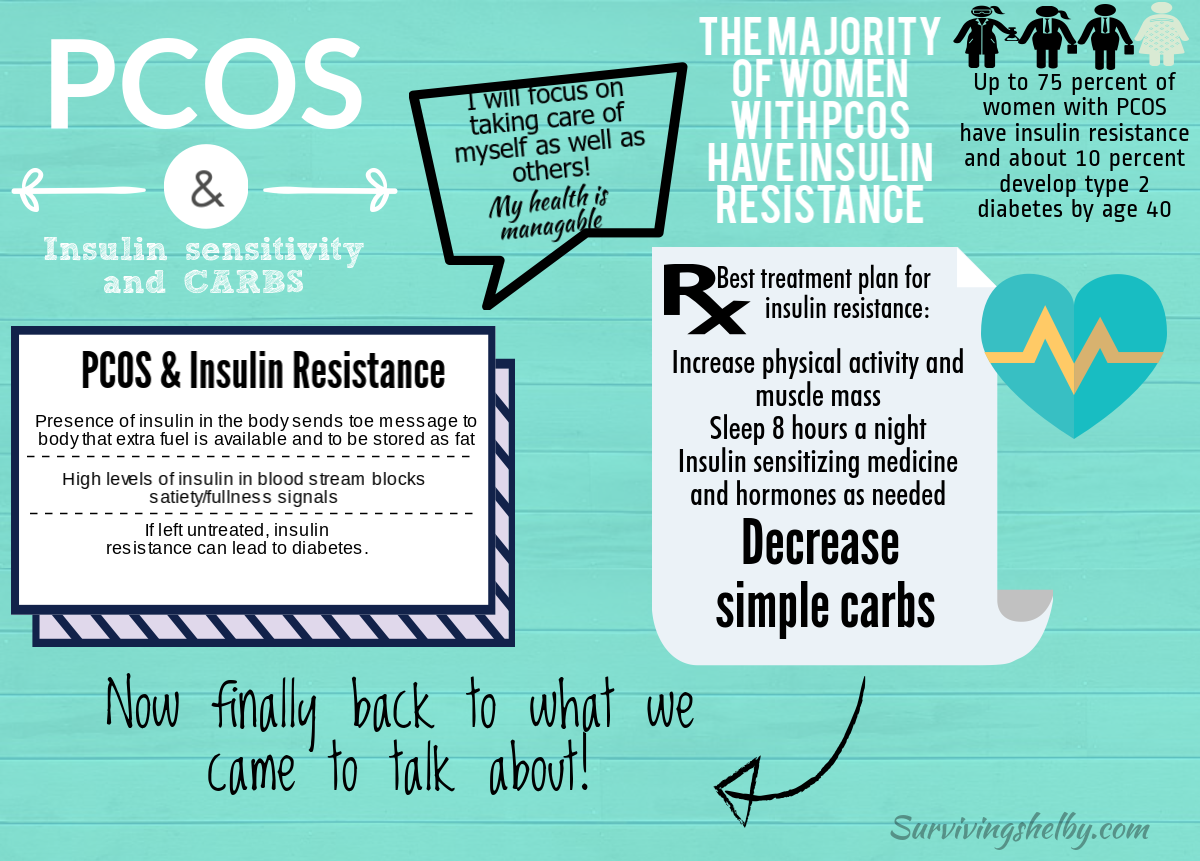
Yum! Let's talk food.
So we have said when you eat carbs, they are broken down into sugars. Women with PCOS often have insulin resistance, leading to elevated blood sugar levels. If your blood sugar is already elevated, and your body is in storage mode, intaking more carbs is bad, right?
Not exactly. Let's go back to the types of carbs.
When you eat carbs, they are broken down at different rates. ( Carb breakdown rates are measured on the glycemic index.) Carbohydrates that cause your blood sugar level to rise rapidly are generally considered bad, or unhealthy carbs while those that are absorbed slowly and have little effect on blood sugar levels are considered good, or healthy carbs.
So back to the burning question...

This is where non scientist science lesson turns into my personal opinion after my education and working with so many women with PCOS...
My thoughts on carbs? Don't let it overwhelm and confuse you. Simplify!
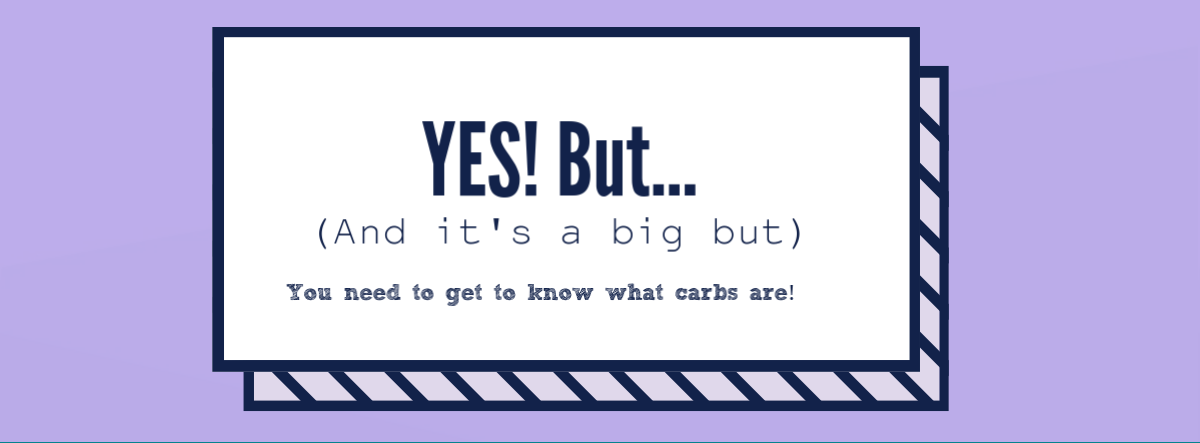
- If you are eating whole, natural, unprocessed carbohydrates, you can consider them a good carb
- If it was made in a lab or has been processed such as soda, candy, or white bread, it’s a “bad” carb, or better yet – not ideal. (I don't like using the word bad for anything.)
There are a few other things I advise my clients to do when thinking about how and what carbs to eat. (That is for another post.) But here are my Coach Shelby carb rules.

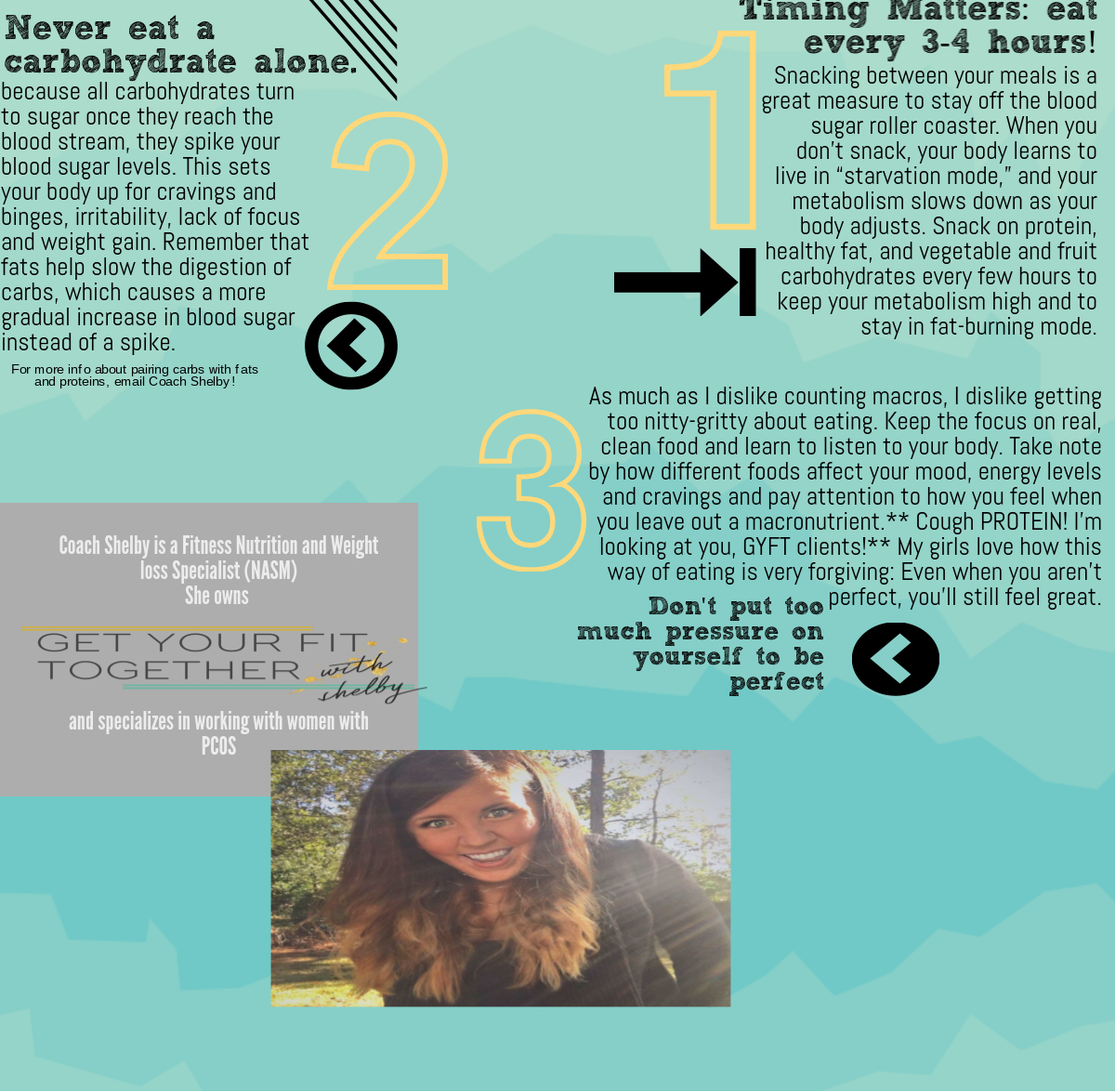
What are your thoughts on carbs? What is your experience with carbs and PCOS?
Until next time!